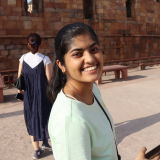Religious institutions and gendered time use: evidence from Ramadan festivities in India
This paper examine how religious mandates of the holy month of Ramadan affect the gendered distribution of time use within Muslim households in India. Using rich data on time use from a nationally representative time use survey and employing a difference-in-differences methodology, the researchers test if Ramadan accentuates gender differences in time use. It is found that, contrary to popular belief, Ramadan moderates the gender disparities in intra-household time use for Muslim households.
Policymakers and researchers make joint efforts to address biomass dependency
More than three billion people globally rely on biomass fuels, such as coal, charcoal, and firewood for cooking and heating. EfD’s IGE program, a capacity development program that targets civil
Training and technical support on adaptation to salinity intrusion could enhance food security
|
Research questions: How does salinity intrusion affect agricultural production and food security and how are male and female farmers different in those impacts? Key Messages
|
Pagination
- Previous page
- Page 3
- Next page





